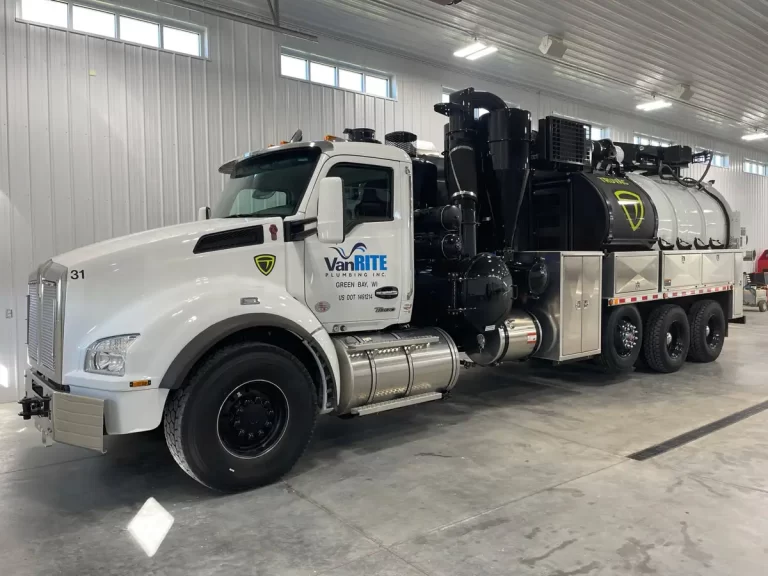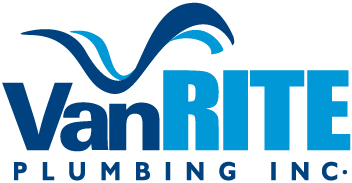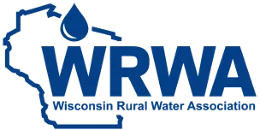Table of Contents
What is Industrial Plumbing?

Industrial plumbing is a specialized field of plumbing that focuses on the installation, maintenance, and repair of large-scale plumbing systems in industrial settings. These systems are essential for factories, manufacturing plants, and other large commercial establishments to function efficiently. Unlike residential plumbing, which caters to homes, industrial plumbing deals with more complex systems that require specialized knowledge and equipment.
Comparison between Residential and Industrial Plumbers
While both residential and industrial plumbers aim to ensure the smooth functioning of plumbing systems, the scale and complexity of their work differ significantly.
Definition of Residential Plumbing: Residential plumbing primarily deals with tasks like fixing clogged sinks, repairing foundation leaks, and unblocking toilets. These tasks are essential for the daily functioning of households.
Role of Industrial Plumbers: Industrial plumbers, on the other hand, cater to non-residential buildings such as offices, malls, and factories. Their role is crucial in society as they maintain essential functions in large establishments, ensuring that operations run smoothly without any disruptions.
| Type of Plumbing | Scale | Typical Settings | Common Challenges | Tools Used |
| Residential | Small | Homes, Apartments | Clogged sinks, leaks | Standard plumbing tools |
| Commercial | Medium | Offices, Restaurants | Drainage issues, maintenance | Advanced plumbing tools |
| Industrial | Large | Factories, Manufacturing Units | Large-scale system management, waste disposal | Specialized equipment |
Difference between Industrial and Commercial Plumbing
While the terms “industrial” and “commercial” are often used interchangeably, there are subtle differences when it comes to plumbing. Commercial plumbing typically refers to services provided for businesses like restaurants, hotels, and retail stores. These services might include routine maintenance and emergency repairs. Industrial plumbing, however, is more focused on large-scale operations like factories and manufacturing plants, where the plumbing systems are more intricate and extensive.
Industrial Plumbing Supplies
The tools and materials used in industrial plumbing are designed to handle the demands of large-scale operations. These might include heavy-duty pipes, industrial-grade faucets, and specialized equipment for tasks like hydro excavation and trenchless pipe replacement. Companies like Vanrite Plumbing, based in Green Bay, offer a range of services, including hydro excavation, trenchless pipe replacement, and more, ensuring that industrial plumbing needs are met with expertise.
| Supply Type | Use | Examples |
| Pipes & Fittings | Transporting water and waste | PVC, Copper |
| Valves & Controls | Regulating flow and pressure | Ball valves, Check valves |
| Fixtures & Appliances | Utility installations | Industrial sinks, faucets |
| Safety Equipment | Protection during tasks | Safety goggles, gloves |
Path to Becoming an Industrial Plumber
For those interested in pursuing a career in industrial plumbing, the journey often begins with an apprenticeship that lasts around 4-5 years. This hands-on training provides budding plumbers with the skills and knowledge they need to excel in the field.
Starting Point: An apprenticeship is the most common entry point into the world of industrial plumbing. During this period, apprentices learn the ropes under the guidance of experienced plumbers.
Alternative Education: While apprenticeships are common, some regions also offer the option of attending a trade school. This formal education can provide a more structured learning environment.
Licensing: After completing their apprenticeship or trade school education, plumbers often need to obtain a license, especially in states where it’s mandatory. This license is a testament to their skills and expertise in the field.
Duties and Challenges of Industrial Plumbing
Industrial plumbers face a unique set of challenges that set them apart from their residential and commercial counterparts.
Scale of Work: Industrial plumbing projects are often vast, spanning across large factories, manufacturing units, and industrial parks. These projects require meticulous planning and execution to ensure that the plumbing systems function seamlessly.
Nature of Buildings: Industrial structures are complex, housing machinery and equipment that demand specialized plumbing solutions. From ensuring adequate water supply to managing waste disposal, industrial plumbers must cater to a wide range of requirements.
Urgency: In an industrial setting, any breakdown or malfunction can lead to significant operational disruptions. Hence, industrial plumbers often work under tight schedules, ensuring that any issues are addressed promptly.
Tools and Techniques: Given the high water pressures and unique challenges in industrial settings, plumbers use a different set of tools and techniques. Innovations like pipe bursting, directional drilling, and televising are some of the advanced methods employed.
Glossary of Terms
Vanrite Plumbing Services
| Service Offered | Description |
| A non-destructive method of excavation that uses pressurized water to break up soil and a vacuum system to remove the debris. | |
| A method that allows for the replacement or repair of pipes without the need for extensive digging or trenching. | |
| A trenchless technique to replace old pipes by breaking them apart and simultaneously installing a new pipe in its place. | |
| A method used to install underground pipes, conduits, or cables in a shallow arc along a prescribed bore path without the need for extensive excavation. | |
| The use of cameras to inspect the condition of underground pipes and determine the need for repairs or replacements. | |
| A comprehensive assessment and documentation of water service lines, valves, and other components to ensure efficient management and maintenance. |
FAQs
| Frequently Asked Questions | Answers |
| What are the three main types of plumbing? | Residential, Commercial, Industrial |
| What are the different types of industrial water pipes? | Industrial water pipes can be made of various materials, including PVC, copper, stainless steel, and more, depending on the application and requirements. |
| What are industrial pipes used for? | Industrial pipes are used to transport water, waste, gases, and other substances across large facilities like factories and manufacturing plants. |
| What is the difference between an indirect and direct system plumber? | A direct system plumber deals with systems where water is directly supplied from the mains, while an indirect system plumber works with systems where water is first stored in tanks before distribution. |
| What are industrial pipes made of? | Industrial pipes can be made of a variety of materials, including metal (like steel or copper), plastic (like PVC or PE), or even concrete, depending on their intended use and the substances they transport. |
Vanrite Plumbing: Your Industrial Plumbing Solution in Green Bay
For businesses in Green Bay seeking expert industrial plumbing solutions, Vanrite Plumbing stands out as a reliable choice. With a range of services tailored to meet the unique demands of industrial settings, Vanrite Plumbing ensures that your operations run smoothly. Whether it’s routine maintenance, emergency repairs, or specialized services like hydro excavation and trenchless pipe replacement, Vanrite Plumbing has got you covered.
Conclusion
Understanding the intricacies of industrial plumbing is crucial for businesses that rely on seamless operations. With the right knowledge and a trusted partner like Vanrite Plumbing, industries can ensure that their plumbing systems are in top-notch condition, ready to support their operational needs.



